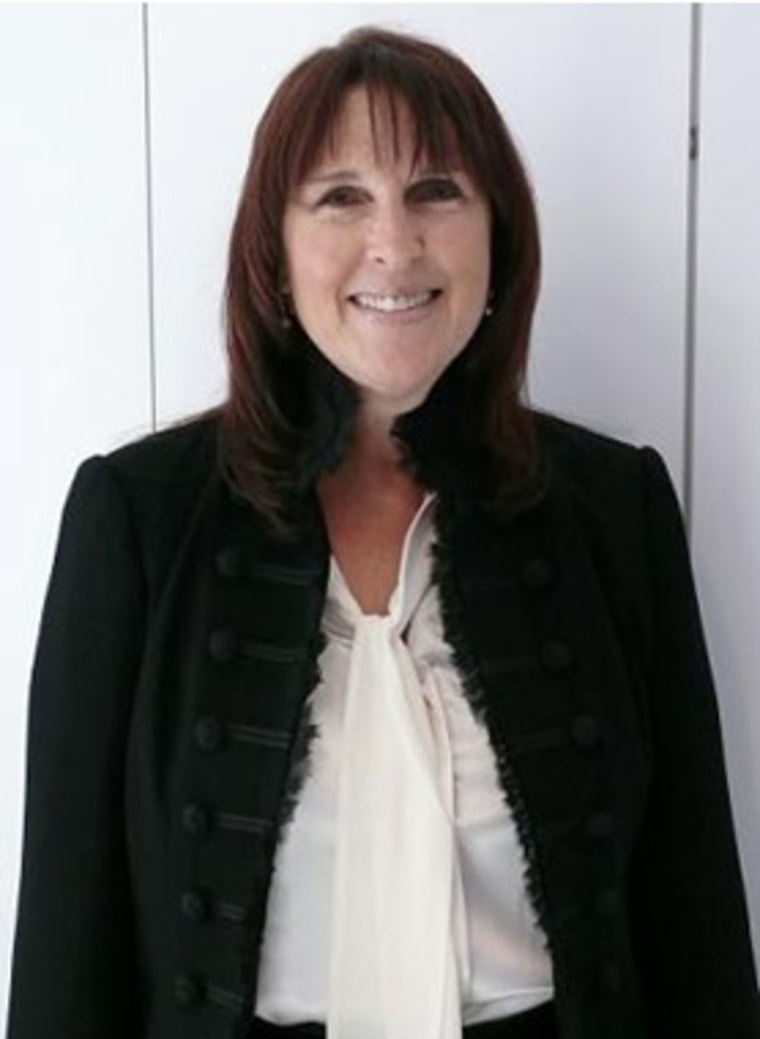Cause Celeb highlights a celebrity’s work on behalf of a specific cause. This week, we speak with music industry publicist and author Jo-Ann Geffen about her work with the as well as her experience co-editing the book " ." The foundation, founded by Nancy Davis in 1993 after she was diagnosed with multiple sclerosis, funds research to find a cure for MS. Its annual was held April 29.
interviewed top songwriters about their inspiration and techniques for their songs. Part of the proceeds of the book will go to charities including the Nancy Davis Foundation for MS. In addition to being a writer, Geffen has worked as a Hollywood publicist, talent manager and celebrity booker, and currently heads .
Q: Tell me about the Nancy Davis Race to Erase MS.
Geffen: Nancy Davis' charity is very, very big because they focus on research. They get doctors and foundations from all over the world with the newest research, but also what she does that’s extremely unique, or at least what her foundation does at her suggestion and demand, is they publish, not just positive results, but also negative results of studies which means that other doctors don’t spend time and money doing the same thing to no avail. If it wasn’t successful, why do it again?
Q: Is this information shared with everyone?
Geffen: Yes. Most organizations don’t want to show failures, only success. They’re afraid they won’t get more money, or people will lose respect for them. But in fact, it’s fabulous! That way, they can move forward, rather than laterally, which is foolish. Because of celebrity relationships that she’s had, she’s able to do the Race to Erase event every year which is huge, both in terms of raising funds, and in terms of awareness for the public.
MS is really, really getting much more prevalent. I have a very, very dear friend who has it. Her brother just died from results of it; he had it very badly because he was in a facility since he was in his late 20s, which is unusual. Usually, it doesn’t come on until late 40s. There are a lot of ancillary diseases you get. She was just diagnosed with Grave’s disease. There a lot of things people don’t know about, that are just being discovered, like a lot of the cosmetic applications that people use on their faces and stuff are not to be used with immune deficiency patients. They don’t tell you that; the doctors don’t do due diligence, that’s how she got Grave’s disease.
So there’s a lot going on, in terms of research, in terms of information, in terms of due diligence that has to start being revealed. Nancy’s organization really does spend money efficiently and effectively and gets results.
Q: How did you become involved?
Geffen: It was mainly because of her — she’s a dear friend. I’ve known many people who have it or have had it. I’ve known agents who had to give up their business because they couldn’t do it. People in licensing and merchandising. I have a male friend. I’ve learned a lot about it of late and a lot of it is environmental it seems. Some of it is dietary, or the dietary side of it can appease the symptoms. It can go into remission and out of remission.
What’s so difficult about finding a solution is that almost every case has unique symptoms; that’s why it’s hard to detect and it’s hard to treat. It really is a challenge.
Q: What sets this organization apart from other MS charities?
Geffen: It’s really the research aspect, and the disclosure.
Q: Tell me about your new book with Chicken Soup co-founders Jack Canfield and Mark Victor Hansen, "Chicken Soup for the Soul: The Story behind the Song," and how it related with your charity work, especially this organization.
Geffen: With this organization, we’re giving some of the proceeds to them, because fortunately the Chicken Soup people are generous that way and they do give percentages of profit to charities. So it was my choice which charities and that’s one of them. As far as the content, I’ve met a lot of the people in the book through one charity or another, from John Legend and Macy Gray to Kanye West with his foundation.
There are a lot of people fortunately are driven to either have their own foundation, people in entertainment that is, or to try to share and support charities they either have an affiliation with or respect for. Of course, there’s several songs in the book in fact that relate to cancer. Melissa Manchester's "The Power of Ribbons," which has kind of become a theme. Melissa Etheridge in her song ("Message to Myself") relates to how she didn’t know when she wrote it was pre-cancer, but after she was being treated for cancer, she wound up reading the lyrics back and listening to the music. There’s a phrase in there about the “blackness in the chest”, and she thought, “my god, this was prophetic, who knew that I would have a black junk taken out of my chest."
So there is reference in the book to various charitable causes and I hope people think well of it, makes them want to give back a little.
